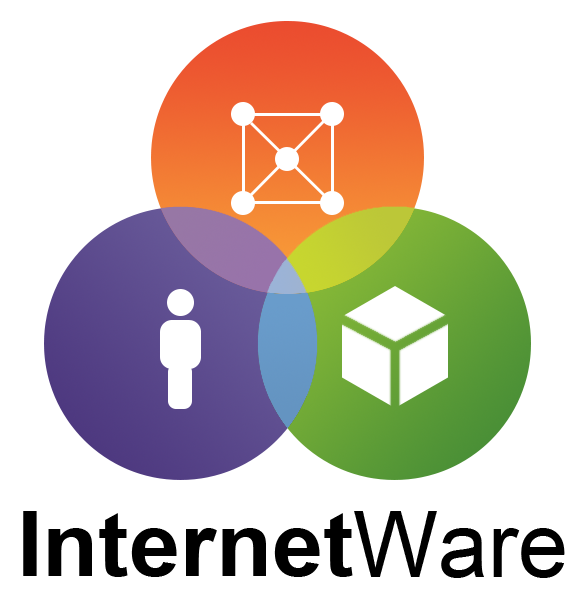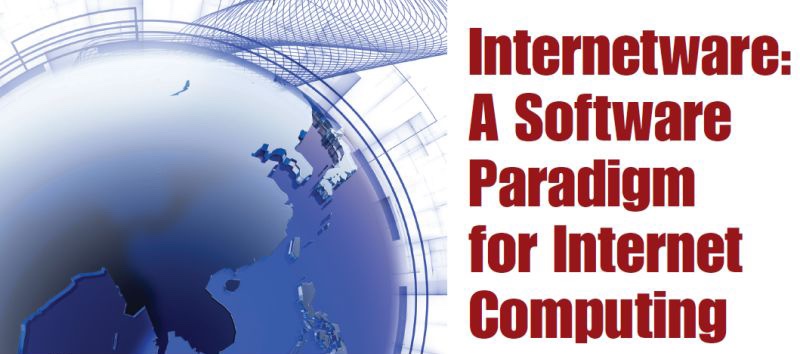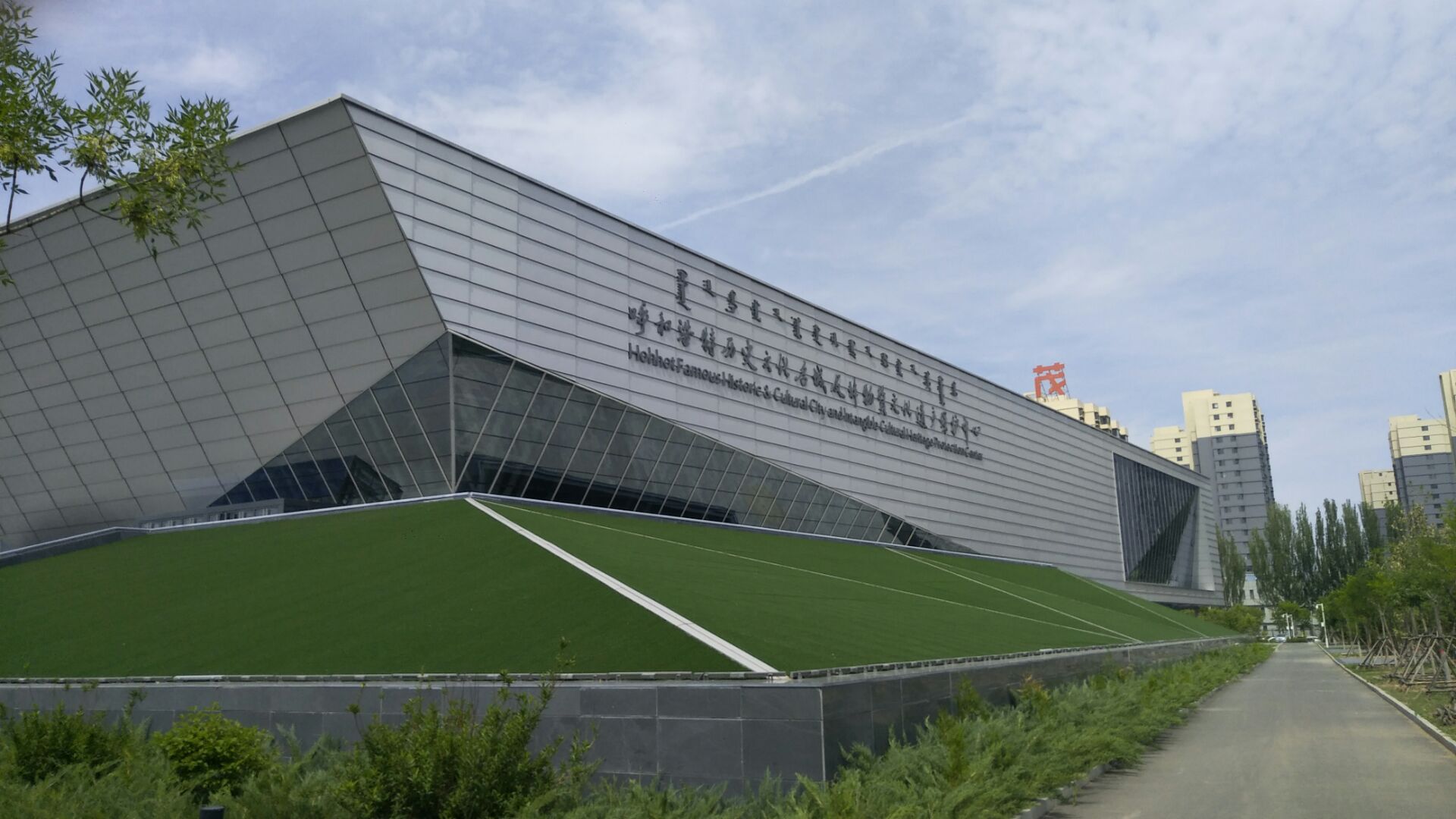
Internetware 2022
Hohhot, China, June 11-12, 2022






Welcome to Internetware 2022!
Internetware 2022, the 13th Asia-Pacific Symposium on Internetware, provides a forum for researchers and practitioners to discuss the trending software technologies in the Internet era.
Internet provides an open global infrastructure for exchanging and sharing resources for people all over the world. The rapid development and the wide application of Internet make it become a new mainstream platform for software to be used, developed, deployed, and executed. With the vision of “Internet as a Computer”, many application styles such as pervasive computing, grid computing, service computing, and cloud computing emerged in this open and dynamic environment.
To support new forms of applications and accommodate the fundamental changes of the underlying supporting platform, software technologies such as service-oriented architecture are proposed for current practices. However, these popular technologies are far from systematic and complete because no uniform software methodology and technology system like the object-oriented one is provided.
Software in the Internet era should autonomously, cooperatively, situationally, emergently, and trustworthily adapt to the new environment. The software entities dispersed on distributed nodes over the Internet, which evolved from objects in object-oriented methodology to software components (component-based software development), now are further turned into self-contained, autonomous and adaptive software services in service-oriented computing of state-of-arts. These software entities are coordinated statically and dynamically in various interaction styles (passively and actively) such as integration, cooperation, and orchestration to achieve flexible design objectives. So a so-called “software-web” instead of information-web is weaved. This software-web as a whole can perceive the changes of open, dynamic, and uncertain environments and respond to them in the way of transforming architectures. Furthermore, the flexible design objective of the software-web is reflected by its exhibiting several compatible goal-directed behaviors according to its up-to-date knowledge about the outside environment.
Therefore, a portmanteau term “Internetware” is used to denote the future software-web in open and dynamic environment, which can be defined as follows: an Internetware system is a software system consists of the self-contained, autonomous entities situated in the distributed nodes of Internet and the coordinators connecting these entities statically and dynamically in various kinds of interaction styles (passively and actively). As a whole, an Internetware system is able to perceive the changes of open and dynamic environment such as Internet, respond to the changes in the way of architectural transformation, and exhibit context-aware, adaptive and trustworthy behaviors in the open and dynamic environment in order to meet its flexible design objectives. Internetware challenges many aspects of software technologies, from operating platforms, programming models, to engineering approaches, etc.
Internetware 2022 Program
Detailed program, session numbers and the reporting orders can be found in the PDF here.

Keynote Speakers
Automated Localization and Fixing for Reproducible Builds

Prof. He Jiang
Dalian University of Technology
Abstract
Reproducibility is the ability of recreating identical binaries under pre-defined build environments. Due to the need of quality assurance and the benefit of better detecting attacks against build environments, the practice of reproducible builds has gained popularity in many open-source software repositories such as Debian and Bitcoin. However, identifying and fixing the unreproducible issues remains a labour intensive and time consuming challenge, because of the lacking of information to guide the search and the diversity of the causes that may lead to the unreproducible binaries. In this talk we first propose an automated framework called RepLoc to localize the problematic files for unreproducible builds. RepLoc is able to automatically produce a ranked list of files that are helpful in locating the problematic files for the unreproducible builds. Furthermore, we instigate how to automatically patch for unreproducible builds. Fixing unreproducible build issues poses a set of challenges within the reproducible builds practice, among which we consider the localization granularity and the historical knowledge utilization as the most significant ones. To tackle these challenges, we propose a novel approach RepFix that combines tracing-based fine-grained localization with history-based patch generation mechanisms. To evaluate the usefulness of RepFix, extensive experiments are conducted over a dataset with 116 real-world packages. Based on RepFix, we successfully fix the unreproducible build issues for 62 packages.Biography
He Jiang received the Ph.D. degree in computer science from the University of Science and Technology of China, China. He is currently a professor and Ph.D. supervisor with Dalian University of Technology, China. He is one of the ten supervisors for the Outstanding Doctoral Dissertation of the CCF (China Computer Federation) in 2014. His current research interests include intelligent software engineering, industrial software testing, and compiler testing. His work has been published at premier venues like ICSE, SANER, and GECCO, as well as in major IEEE transactions like IEEE Transactions on Software Engineering, IEEE Transactions on Knowledge and Data Engineering, IEEE Transactions on Reliability, IEEE Transactions on Cybernetics, and IEEE Transactions on Services Computing. He is a member of IEEE, ACM, and a distinguished member of CCF.VerCors: verified concurrent software

Prof. Marieke Huisman
University of Twente, the Netherlands
Abstract
In this talk I will present our approach to reason about concurrent software based on permission-based separation logic. I will briefly describe the fundamentals of deductive software verification, and then discuss what is needed to use this approach for concurrent and distributed software. In particular, for concurrent and distributed software the program annotations have to take care of what part of the memory is affected by a thread or process. I will show how permission-based separation logic is particularly suitable for this. I will show how this is supported by the VerCors program verifier, and discuss some of the case studies that have been done with VerCors. A main characteristic of the VerCors verifier is that it can reason about different kinds of concurrent programs. In particular, VerCors was originally developed to reason about Java programs, but it can also be used to reason about OpenCL kernels (for GPU), or to prove that compiler directives for parallellisation, such as in OpenMP, are correct. I will also provide an outlook on how the VerCors approach might be usable for internetware.Biography
Marieke Huisman is a professor in Software Reliability at the University of Twente. She is well-known for her work on program verification of concurrent software. In 2011, she obtained an ERC Starting Grant, which she used to start development of the VerCors verifier, a tool for the verification of concurrent software. Currently, as part of her NWO personal VICI grant Mercedes, she is working on further improving verification techniques, both by enabling the verification of a larger class of properties, and by making verification more automatic. Since 2019 she is SC chair of ETAPS. Besides her scientific work, she also actively works on topics related to diversity, equity and inclusion.Call for Papers
Internet is open, dynamic, and meets a constantly changing environment. Software, being architected like the Internet, developed with the Internet, operated on the Internet, connects the human, cyber, and physical world. Internetware ought to be autonomous, cooperative, situational, evolvable, emergent, and trustworthy, but these requirements pose unique challenges for software technologies to support Internetware's construction, deployment, and use.
This symposium aims to provide an interactive forum where researchers and professionals from multiple disciplines and domains meet and exchange ideas to explore and address the challenges brought by Internetware.
Internetware 2022 will be held June 11-12 in Hohhot, China. We solicit submissions describing original and unpublished results of theoretical, empirical, conceptual, and experimental software engineering research related to Internetware. Topics of interests include but are not limited to:
- Novel software paradigm for Internetware
- Modeling and implementation of Internetware
- Requirements engineering for Internetware
- Software analysis, verification and testing
- Mining software repositories
- Software dependability, trustworthiness and confidence
- Software architecture and design
- Crowd-based methods, techniques and tools for Internetware
- Social-technical models and techniques
- Software ecosystem practices and experiences
- Software models and techniques for Internet-based systems such as Cloud Computing, Service Computing, Social commputing, Mobile Internet, Internet of Things, and Cyber-Physical Systems
- Software engineering for/with Big data
- Software engineering for/with Artificial Intelligence
Main Conference
Following types of papers are welcomed to Internetware 2022:
- Technical research papers for solid technical contributions to Internetware. Technical research papers must not exceed 10 pages for all text, figures, tables, and references.
- Short papers for early announcements on breaking research results. Short papers must not exceed 6 pages for all text, figures, tables, and references.
Best papers submitted to the technical research track will be selected and invited to submit an extended version to the Journal of Computer Science and Technology. All extended submissions will be evaluated following the guidelines of the corresponding journal. Only those satisfying all the criteria will be accepted for the journal publication.
Special Tracks
Best papers submitted to a special track will be first accept to Internetware 2022 proceedings, and then be invited to submit an extended version to the corresponding journals. All extended submissions will be evaluated following the guidelines of the corresponding journal. Only those satisfying all the criteria will be accepted for the journal publication.
This year's two special section/issues:
- Special Section/Issue on intelligent software engineering
- Special Section/Issue on evolving large-scale systems
Submission
All papers (main conference or special track) must be submitted electronically through EasyChair. Please specify the track of your submission. All submissions must be in English and in PDF format. Submissions that do not comply with the above instructions will be desk rejected without review. Please use the ACM Master article template, as can be obtained from the ACM Proceedings Template pages.
Important dates:
- Submission Deadline:
February 20, 2022Extended to March 13,2022 - Notification of Acceptance:
April 17, 2022Extended to April 29,2022 - Camera-Ready Version: June 5,2022(Temporary)
Camera-Ready Instructions
Accepted Full papers must not exceed 10 pages for all text, figures, tables, and references. Accepted short papers must not exceed 6 pages for all text, figures, tables, and references. Please upload the camera copy via EasyChair. When uploading the camera copy, you must upload manuscripts including the source files and PDFs. You can compress the files in a zip file and upload the zip file.
Publication
All authors of accepted papers of will be asked to complete an electronic ACM Copyright form and will receive further instructions for preparing their camera ready versions. All accepted contributions will be published in the Internetware2022 electronic proceedings and in the ACM Digital Library.
Special Sections/Issues
We are excited to announce two special sections for Internetware'22:
- Special Section/Issue on Intelligent Software Engineering
- Special Section/Issue on Evolving Large-scale Systems
1. Special Section/Issue on Intelligent Software Engineering
Best papers will be invited to “Automated Software Engineering: An International Journal!”
Software systems have been playing important roles in business, scientific research, and our everyday lives. It is critical to improve both software productivity and quality, which are major challenges to software engineering researchers and practitioners. As developers work on a project, they leave behind many digital artifacts. These digital trails can provide insights into how software is developed and provide a rich source of information to help improve development practices. For instance, GitHub hosts more than 57M repositories, and is currently used by more than 20M developers. As another example, Stack Overflow has more than 3.9M registered users, 8.8M questions, and 41M comments. The productivity of software developers and testers can be improved using information from these repositories.
In recent years, software engineering is benefiting from the rise of Artificial Intelligence (AI) techniques (e.g., machine learning and deep learning). These techniques have shown a great success in addressing various software engineering problems (e.g., code generation, code recommendation, and bug fix and repair). Many papers have applied AI techniques to discover knowledge or build intelligent tools from software artifacts (e.g., specifications, source code, documentations, execution logs, code commits and bug reports) to improve software quality and development process. Mining high quality knowledge from software artifacts is critical to building AI tools. Thus, mining software repositories to learn predictive and quality models is an important part in intelligent software engineering. For this special issue, we seek the full potential of AI on improving both software productivity and quality.
We invite the submission of high-quality papers describing original and significant work in all areas of intelligent software engineering including (but not limited to): 1) Methodological and technical foundations of intelligent software engineering, 2) Approaches and techniques for knowledge discovery in various software artifacts, and 3) Applications of AI techniques to facilitate specialized tasks in software engineering. Topics of interest include but are not limited to:
A. Intelligent software engineering techniques
- AI models and techniques for software engineering
- Robust and highly scalable algorithms for mining ultra-large-scale software systems
- Explainable and actionable AI models
- Visualizing AI models
B. Knowledge discovery in software artifacts
- Mining software specifications
- Mining source code/code commits
- Mining execution traces and logs
- Mining bug and crash reports
- Mining Q&A and social data
C. Intelligent software engineering in specialized tasks
- AI techniques for software development and reuse
- AI techniques for software maintenance and evolution
- AI techniques for software testing and debugging
- AI techniques for open-source ecosystem best practices
- AI techniques for better requirement reasoning and refinement
- AI techniques for program repair
Submission
To speed up the review process, and to encourage people to join the Internetware 2022 conference (in Hohhot, China), we setup two rounds of reviews: an Internetware conference round, and a journal round.
In the Internetware conference round, authors are encouraged to submit their manuscripts to the Easychair submission site, You should choose “Intelligent Software Engineering Track” in Easychair. The submissions must have not been previously published or considered for publication elsewhere. Each submission must not exceed 10 pages for all text, figures, tables, and references. All submissions must be in English and in PDF format. Please use the ACM Master article template, as can be obtained from the ACM Proceedings Template pages. Each submission will receive at least three high-quality reviews from our PCs. Each accepted submission must be accompanied by a registration of at least one author and presented at Internetware 2022.
And in the journal round, only the selected best papers will be invited to submit their revisions to the Automated Software Engineering journal. You should choose SI:TBD. The authors should carefully address the comments from the Internetware conference reviewers and prepare a response letter. And these papers will be reviewed by the same three reviewers. Note that only the selected best papers from the Internetware conference round will get invited for possible journal publication.
Important Dates
Internetware conference round
- Submission Deadline:
February 20, 2022Extended to March 13,2022 - Notification of Acceptance:
April 17, 2022Extended to April 29,2022 - Camera-Ready Version: June 5,2022(Temporary)
Journal round
- Submission Deadline: June 30, 2022
- First Round Review Due: September 30, 2022
- Revision Due: December 31, 2022
- Final Decisions: March 31, 2023
Guest Editors
- Xing Hu, Zhejiang University, China (xinghu@zju.edu.cn)
- Xin Xia, Huawei, China (xin.xia@acm.org)
- David Lo, Singapore Management University, Singapore (davidlo@smu.edu.sg )
- Ge Li, Peking University, China (lige@pku.edu.cn)
2. Special Section/Issue on Evolving Large-scale Systems
Best papers will be invited to “Journal of Software: Evolution and Process!”
Software systems, particularly large-scale systems that underwent long-term maintenance and evolution, are the foundation of the modern Internet era. However, these systems are still not rock solid and are vulnerable to delayed releases, defects, cyber-attacks, etc. Such vulnerabilities may cast significant impact on our daily lives or even catastrophic consequences. Unfortunately, it is still an open challenge towards the effective construction and maintenance of such systems due to their complexities and the continuously evolving property.
This special issue focuses on fundamental large-scale software systems, including (but not limited to) operating systems, cloud/distributed systems, middlewares, databases, and server systems. Understanding and characterizing the evolution of such systems can lead to more reliable software systems, and may also pave the path for the new generations of software systems. In particular, this special issue has a strong emphasis on two aspects, “evolution” and “practicality”. On the one side, this special issue has a special focus on the systems’ dynamics over time, aiming to dissecting the challenges, problems and side effects induced by the continuously evolution of such large-scale systems. On the other side, it expects “practical” solutions, such as novel software architectures, scalable testing methods, debugging and diagnosis techniques, to tackle the challenges of evolving large-scale systems.
We call for high-quality original research papers that address the fundamental challenges in the maintenance and evolution of large-scale systems. This special issue will blend standalone submissions and the best papers from the Journal Special Track of the 13th Asia-Pacific Conference on Internetware. Welcomed topics include but are not limited to:
- Empirical studies on the maintenance and evolution of large-scale systems
- Artifact management and continuous integration/deployment for large-scale systems
- Novel software design and architecture for large-scale systems
- Scalable software testing, analysis, validation, and verification for large-scale systems
- Debugging and failure diagnosis for large-scale systems
- Artificial intelligence for/with large-scale systems
- Software ecosystems: practices and experiences
Submission
The Internetware Journal Track: Submit via easy Easychair and select the “Evolving large-scale systems” Track. Authors of accepted papers are required to present their papers at the Internetware conference, and the best papers will be invited to this special issue.
Standalone Submissions: We also welcome standalone manuscripts directly submitted to this special issue via the submission site. Please select "Special Issue on Evolving Large-scale Systems" in the submission system. All the papers will be peer-reviewed following the Software: Evolution and Process reviewing procedures.
The submissions should not have been published previously nor be under review. If the submission is an extended work of a previously published conference/workshop paper (including the invited papers from Internetware), the following materials are mandatory:
- Summary of the differences between the conference/workshop paper and the extended version paper;
- A list of new and original ideas/contributions in the extended version paper (identifying sections where they are proposed/presented);
- Evidence that there are at least 30\% of new materials;
- The previously published conference/workshop paper.
Important Dates
Internetware Conference Round
- Submission Deadline:
February 20, 2022Extended to March 13,2022 - Notification of Acceptance:
April 17, 2022Extended to April 29,2022 - Camera-Ready Version: June 5,2022(Temporary)
Journal Round and Standalone Submissions
- Submission Deadline: June 30, 2022
- First Notification: September 30, 2022
- Revision Submission: December 31, 2022
- Notification of Acceptance: March 31, 2023
Guest Editors
- Yanyan Jiang, Nanjing University, China (jyy@nju.edu.cn)
- Ming Wen, Huazhong University of Science and Technology, China (mwenaa@hust.edu.cn)
- Feng Qin, The Ohio State University, United States (qin.34@osu.edu)
Important Dates
- Submission Deadline:
February 20, 2022Extended to March 13,2022 - Notification of Acceptance:
April 17, 2022Extended to April 29,2022 - Camera-Ready Version: June 5,2022(Temporary)
Steering Committee
Co-Chairs
- Hong Mei, Peking University, China
- Jian Lyu, Nanjing University, China
Members
- Zhi Jin, Peking University, China
- Tao Huang, Chinese Academy of Sciences, China
- Daoxu Chen, Nanjing University, China
- Jianmin Wang, Tsinghua University, China
- Xuandong Li, Nanjing University, China
General Co-Chairs
- Zhi Jin, Peking University, China
- Xuandong Li, Nanjing University, China
- Guanglai Gao, Inner Mongolia University, China
Program Committee
Co-Chairs
- Jun Pang, University of Luxembourg, Luxembourg
- Lei Bu, Nanjing University, China
- Ge Li, Peking University, China
Members
- Chunyang Chen, Monash University, Australia
- Liqian Chen, National University of Defense Technology, China
- Taolue Chen, University of London, UK
- Yuting Chen, Shanghai Jiao Tong University, China
- Zhenbang Chen, National University of Defense Technology, China
- Yang Feng, Nanjing University, China
- Cuiyun Gao, Nanyang Technological University, Singapore
- Fuyuki Ishikawa, National Institute of Informatics, Japan
- He Jiang, Dalian University of Technology, China
- Lingxiao Jiang, Singapore Management University, Singapore
- Yanyan Jiang, Nanjing University, China
- Yu Jiang, Tsinghua University, China
- Hui Liu, Beijing Institute of Technology, China
- Yang Liu, Nanyang Technological University, Singapore
- David Lo, Singapore Management University, Singapore
- Lei Ma, University of Alberta, Canada
- Hausi A. Muller, University of Victoria, Canada
- Yu Pei, The Hong Kong Polytechnic University, China
- Xin Peng, Fudan University, China
- Shengchao Qin, Teesside University, UK
- Jun Sun, Singapore Management University, Singapore
- Kenji Tei, Waseda University, Japan
- Jingyi Wang, Zhejiang University, China
- Anton Wijs, Eindhoven University of Technology, Netherands
- Xin Xia, Huawei, China
- Tao Xie, Peking University, China
- Xiaofei Xie, Nanyang Technological University, Singapore
- Jifeng Xuan, Wuhan University, China
- Jie Zhang, University College London, UK
- Chenyi Zhang, Jinan University, China
- Yuxia Zhang, Beijing Institute of Technology, China
- Haiyan Zhao, Peking University, China
- Junfeng Zhao, Inner Mongolia University, China
- Minghui Zhou, Peking University, China
- Zhiqiang Zuo, Nanjing University, China
Local Arrangement Co-Chairs
- Jiantao Zhou, Inner Mongolia University, China
- Junfeng Zhao, Inner Mongolia University, China
Website Chair
- Yongqiang Gao, Inner Mongolia University, China
Financial Chair
- Yongqiang Gao, Inner Mongolia University, China
Proceedings Chair
- Yang Feng, Nanjing University, China
Publicity and Social Media Chair
- Yanyan Jiang, Nanjing University, China
- Shaopeng Wang, Inner Mongolia University, China
Conference Venue Information

The conference venue will be The Inner Mongolia Xincheng Hotel. Xincheng Hotel, situated in the center of Hohhot, the capital city of Inner Mongolia Autonomous Region, covers an area of 121,000 square meters. Here you can find a peaceful and beautiful environment and gardens carefully planted in the midst of modern buildings. On this wonderful and rich field, it is equipped with modern facilities such as lodging, food and beverage, entertainment, SPA, exhibition and club as well as other devices. In addition, there are more than 600 beds, over 20 meeting rooms, 45 restaurants, bars and banquet halls, an 18-lane bowling alley, video games and other kinds of entertainment and recreation facilities, which create a wonderful and pleasant place for people. Xincheng Hotel has also been equipped with an intranet and internet system, enabling many business transactions to be conveniently conducted online, such as reservations, receptions, reception, registration, enquiries, monitoring, fire control, checking in and checking out, which will assist out guests in utilizing fast, safe, and high-quality service.
Address: 40. Hulun S. Rd. Hohhot, Inner Mongolia, China
Tel: +86-471-6660888
Fax: +86-471-6931141

Travel Information and Food
The Hohhot City

- Inner Mongolia exhibition hall
- Dazhao Wuliang Temple
- Qingcheng Park



Hohhot Gourmet
- Roasted Whole Lamb
- Boiled sheep on ice
- Barbecue



Registration Information
The safety and well-being of all conference participants is our priority. After evaluating the current COVID-19 situation, Internetware 2022 will take place as an online conference on Jun. 11-12, 2022, instead of an in-person conference in Hohhot, China. We look forward to seeing you!
There are two types of registration for Internetware 2022: Author and Attendee. At least one author for each accepted paper must complete an Author Registration in order for the paper to be included in the conference proceedings.
The following table show different kinds of registration fee:
| Author | Attendee | ||
|---|---|---|---|
| CCF/ACM Members | Non-CCF/ACM Members | CCF/ACM Members | Non-CCF/ACM Members |
| 1500 CNY | 1900 CNY | 400 CNY | 500 CNY |
If you have any questions, you can contact us by email internetware2022@163.com.
Registration Method
You can register for Internetware 2022 from now on through https://conf.ccf.org.cn/internetware2022.
Invitation Letter
Please click here to download the invitation letter
Questionnaire for Internetware 2022
Service Center for Societies of CAST(SCS-CAST) and the Evaluation Research Centre of Chinese Academy of Sciences (ERC-CAS) are carrying out a survey of Chinese Academic Conference Quality Assessment for improving a better academic communication environment. In this regard, we would be most grateful if you could take 2 minutes to fill out this questionnaire for Internetware 2022. All of your answers will be kept strictly confidential and never associated with your names.
Please click on the link below or scan the QR code below to complete the survey.
******
https://casisd.wjx.cn/vj/hm5ueFn.aspx?udsid=990963
